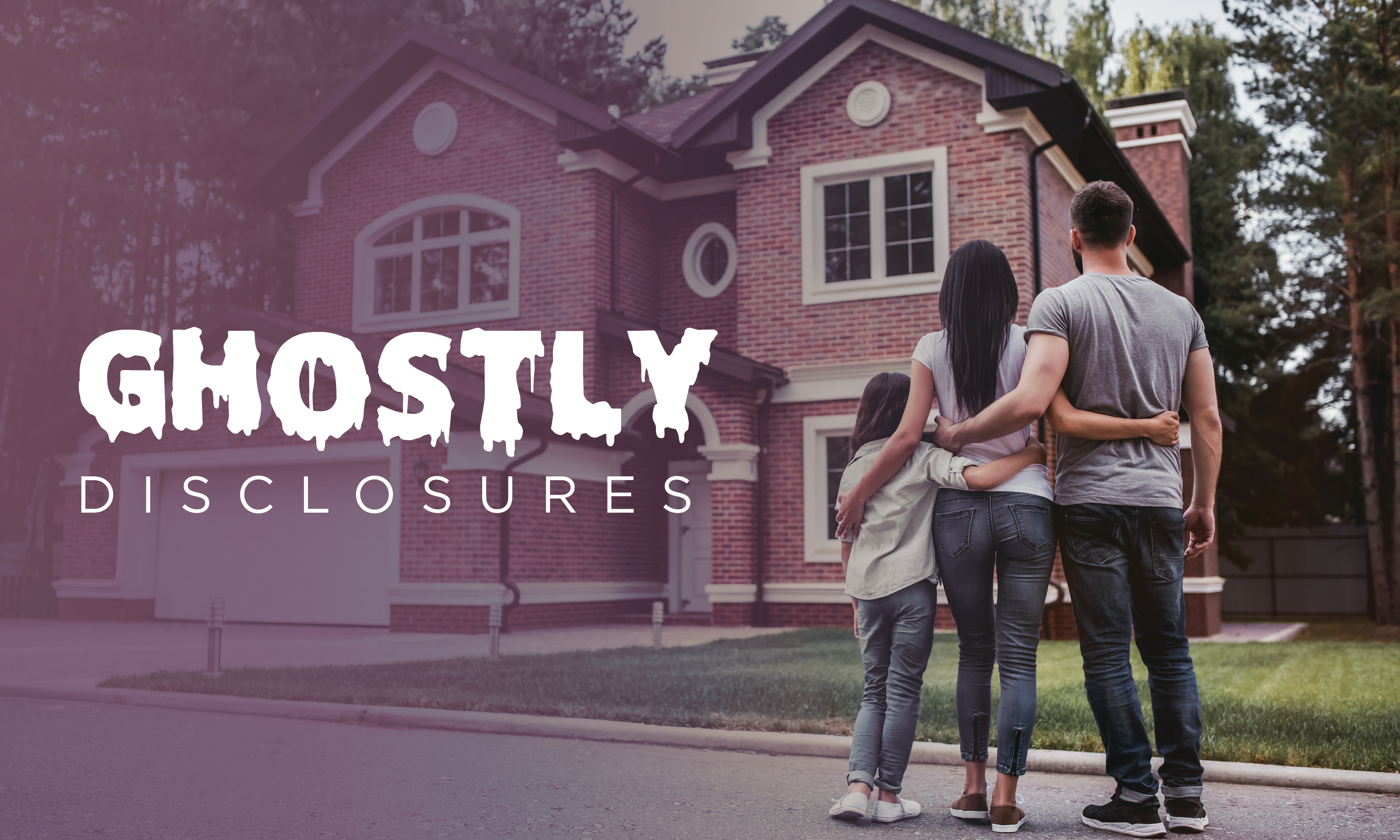Most real estate professionals know the ins and outs of disclosing physical damage or immediate hazards about a home to potential buyers. Whether it’s faulty wiring in the basement or mold damage due to moisture, there’s a disclosure form for that. But what about issues with the property that aren’t so apparent — more psychological, stigmatized… or even haunted?
A stigmatized property is any building that has a detrimental issue that is not related to its physical condition. This could include a sordid history — say, a murder or suicide on the premises — or even a belief that the house has a supernatural visitor. In Illinois, the Real Estate License Act states that agents only have to disclose information that has a physical effect on the property; anything else would be considered a psychological defect or a stigma. “So, if we’re not talking about a defect in the physical condition, then we’re talking about a stigma or a psychological defect, if you will, that is really subjective,” said Betsy Urbance, general counsel and vice president of legal services for Illinois Realtors. The seriousness of the “defect” is determined by the parties involved in the sale.
Brokers in Illinois should count their blessings, as several other states throughout the country are much more exacting about their disclosure laws. In California, anything that could affect the material value of a home is required to be disclosed. That includes death and property that is stigmatized, such as a property that is known to have a haunting past. “Anything that affects, or could potentially affect, the material value of the property needs to be disclosed,” said Cindi Hagley, owner of The Hagley Group in Pleasanton, California. “If there’s been a death on the property in the last three years, that must be disclosed. Manner of death doesn’t need to be disclosed, but if we’re asked about it as licensed [real estate professionals], we want to disclose that if they ask about it.”
California’s departure from disclosure law might be best seen in the context of the state’s laser focus on consumer protection. Hagley noted that while disclosure laws like Illinois’ tend to benefit the listing agent and the seller, increased disclosures, such as those in her home state, clearly benefit buyers and their representatives.
Hagley, who’s known throughout California as the stigmatized home specialist, noted that it’s not just about ghostly visitors. “Stigmatized homes could be a meth lab,” she said, noting that haunted houses are relatively rare. As a national consultant, she always recommends that agents disclose as much as possible, even if the state doesn’t require it. “If there was a mass murder on a piece of property and a buyer who was looking from out of state doesn’t know this, I think the buyer should know that that happened,” she said, noting that the buyer could have a case for a lawsuit.
Urbance calls it the “neighbors always tell” rule. If given the chance, locals will often let potential buyers know of any gruesome or weird occurrences that have happened at the house. “I always suggest that they have a sensitive and/or frank discussion with the seller reminding the seller to talk to their attorney first and foremost. That’s No. 1, and No.2: Consider the fact that the neighbors always tell stories.”
The Illinois disclosure laws don’t look like they will see any big change anytime soon, specifically when it comes to homes that are stigmatized as haunted. “How do you prove the ghost, right? Even if you watch those crazy TV shows that my kids watch, I’d argue it’s static,” said Urbance. Illinois recently went through an extensive revision of their license act, and zero discussion was had about the disclosure segment of the law.
Agents across the country have had to deal with spooky homes that have a pretty dark history. Robert Giambalvo, a Redfin agent based in California, recently sold the infamous Los Angeles house where members of the Manson Family killed Leno and Rosemary LaBianca in 1969. The “Ghost Adventures” host Zak Bagans bought the home, which makes obvious sense for his interest in the supernatural. Giambalvo said he didn’t experience anything strange or out of the ordinary while showing the home, but his biggest challenge was weeding out the serious clients from the Instagrammers wanting a photo-op. “We probably had over a hundred tour requests, probably only showed it to about 20 people,” said Giambalvo. “There’s no photography allowed… they have to demonstrate their ability to purchase.” This included clients showing Giambalvo their bank statements and getting preapproved by their banks.
Aside from the home’s gruesome history, the 280-degree views of downtown LA made the home desirable to many, said Giambalvo. Many buyers didn’t even ask him questions about the home’s past. “How long does something need to pass where something like that becomes insignificant?” he asked. “I bet you that most of the people that saw the house were probably born after 1968, so it’s not really a significant thing to them.”
Hagley’s advice when showing stigmatized homes is to keep your emotions out of it when dealing with a buyer. “If you’re showing an allegedly haunted home, be neutral because you don’t know how that prospective buyer feels,” she said. “If you’re in a home, be respectful. Also, if you do believe in the paranormal, the last thing you want to do is upset one of these spirits.”
